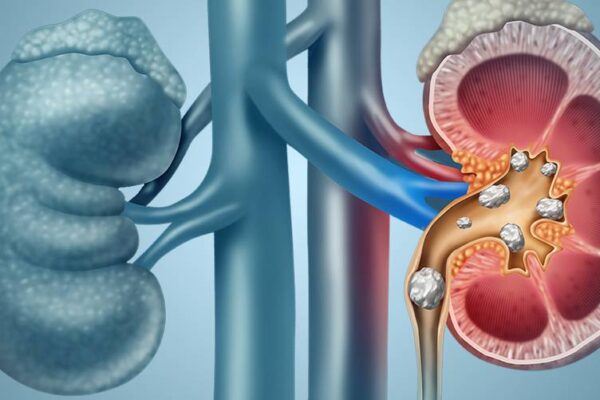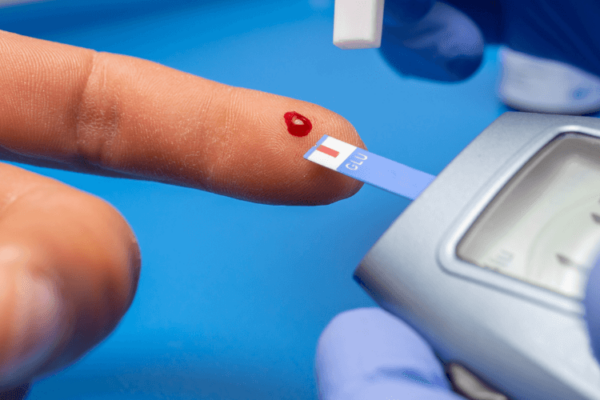
29 Apr Are Ketogenic Diets Good For You? (Benefits, Potential Risks)
Are Ketogenic Diets Good For You? (Benefits, Potential Risks)
By Island Hospital | Apr 29, 2024 12:00:00 PM
Medical Reviewer: Dietitian
In order to lose a substantial amount of body weight for health, fitness or beauty reasons, forgoing the conventional healthy balanced lower calorie diet, there are people trying other diet plans such as intermittent fasting, Paleo, Dukan diets and Ketogenic diets.
Short term studies have shown that ketogenic diets have health benefits, including helping with weight loss and improving blood sugar and blood pressure levels.
However, there is rising concern on the long term side effects of staying on this diet.
In this article, we will provide an overview of the ketogenic diet and explore whether it’s a healthy and safe option for you.
What is the Keto Diet?
The Ketogenic diet or keto diet is a low carbohydrate, high fat and moderate protein diet.
The concept of Keto Diet was initially developed in 1921 by Dr. Russel Wilder for the management of refractory seizures in pediatric patients [1].
Originally, the diet consisted of a 4:1 ratio of fat-to-carbohydrate and protein. Fat provides upwards of 90% the calorie intake [2]. These diets are based on severely restricting overall intake of carbohydrate with a goal of bringing it down to less than 50 g/day.
A well-formulated Keto Diet limits protein intake moderately to less than 1 g/lb body weight, or 1.5 g/lb body weight for individuals performing heavy exercises.
The diet does not restrict fat intake while decreasing appetite and calorie intake, resulting in weight loss observed after the initiation of the diet [3].
How It Works
This diet involves consuming a small amount of carbohydrates and replacing them with fat and protein and it has become a popular strategy for decreasing body mass (BM) and fat mass (FM).
This macronutrient distribution leads to an increase in the production of ketone bodies (KB) and consequently to physiological ketosis (a metabolic state that occurs when your body burns fat as primary source of energy instead of glucose or sugar).
More specifically, the diet forces your body to rely on ketone bodies (fuel produced by the liver from stored fat), instead of sugar (fuel produced from carbohydrates). It usually takes a few days to achieve this ketosis state.
Our body tends to show some physical symptoms when it is in the state of ketosis such as:
- Increased thirst
- Dry mouth
- Frequent urination
- Decreased appetite
- Tiredness
- Headache
What Are Types of Keto Diets?
Do note the existence of different types of keto diets. Each variation has a slight change in the percentage of fat, protein, and carbohydrates.
The different types include:
- Standard keto diet (SKD): Low-carbohydrate, moderate-protein, high-fat diet (70% fat, 20% protein, 10% carbohydrates).
- Cyclical keto diet (CKD): Higher carbohydrate refeeds (e.g., 5 keto days, followed by 2 high-carbohydrate days).
- Targeted keto diet (TKD): Similar to SKD, but carbohydrates are added around intense workout times.
- High-protein keto diet (HPKD): Similar to SKD, but with a higher protein intake (60% fat, 35% protein, 5% carbohydrates).
What Foods to Eat in the Keto Diet?
The basic rules of the keto diet are: restrict your carbohydrate intake and eat high-fat food in every meal. Foods which fit into this category are:
- Meats
- Fishes
- Eggs
- Oils (e.g. extra virgin olive oil)
- Butter and cream
- Avocados
- Nuts (e.g. walnuts, pecans)
- Dark chocolate
- Low carbohydrate (non-starchy) vegetables (e.g. spinach, cabbage, cauliflower)
- Unprocessed cheeses (e.g. cheddar, parmesan)
- Very low carbohydrate beverages with no sugar added (eg: coffee, tea, coconut water)
Interested in starting a low sugar diet? Learn more in our article on how to cut sugar intake (while keeping meals exciting!).
Who tried the Keto Diet?
Firstly, the keto diet is used as a treatment for children with epilepsy, when certain medications are ineffective in treating their seizures.
The Epilepsy Foundation states that the keto diet is helpful with epileptic conditions such as infantile spasms, rett syndrome, and tuberous sclerosis complex. The combination of both medicines and food (keto diet) may be effective in reducing seizures.
Secondly, the people with diabetes.
Management of type 1 and type 2 diabetes generally consists of medication adjustments targeted toward blood sugar control and an HbA1c level of <7%.
Diabetic patients who are on a very low carbohydrate diet are found to be able to experience decreased blood sugar levels, lower levels of fasting insulin, decreased insulin resistance, and potentiating decreased requirements of insulin and/or oral glycemic medications [4].
Although some studies show some evidence regarding the normalization of HbA1c, the keto diet comes with increased risks of hypoglycemic (low blood sugar level) episodes.
Hence, it is important to emphasize that insulin regimens, as well as oral hypoglycemic agents, must be closely monitored and adjusted in any diabetic patient following a keto diets regimen.
The participants of a 2022 study on the effect of low carb diets on diabetes patients, found the keto diet too restrictive and leaned towards the Mediterranean diet [5]. The lead author of the study, Christopher Gardner, stated that there was no added benefit to “cutting out legumes, fruits, and whole grains” as dictated by the keto diet.
Lastly, some people with obesity had tried the keto diet which had been found to produce reduction in weight, triglycerides and blood pressure.
Further studies have shown a smaller appetite among participants, despite them losing a notable amount of weight [6]. However, research is needed to determine the long term sustainability and effectiveness of this diet.
Unsure of your health status? Get regular health screenings to ensure early diagnosis and treatment of potential diseases and issues.
Risks and Side Effects of the Keto Diet
As your body adjusts to the keto diet, you may experience short term side effects, called the ‘keto flu’. These last a few days to weeks.
The symptoms of this flu include:
- Diarrhea
- Constipation
- Vomiting
- Bad breath
- Headache
- Fatigue
Some individuals may experience less common symptoms, such as insomnia, nausea, and decreased exercise performance.
These symptoms can be countered by drinking plenty of fluid, eating more often, and consuming colorful vegetables. However, if symptoms persist, adopt a slow and gradual transition to the diet and consult your doctor.
Furthermore, it is important to note the long term risks of staying on this diet. Research has yet to determine the safety of the keto diet in the long term, with most research focused on the short term effects.
Here are a few potential negative effects:
- Nutrient deficiencies: The restrictive nature of keto diets can lead to insufficient intake of essential vitamins (such as B vitamins), minerals, phytochemicals and dietary fiber.
- Kidney stones: This high fat and low carb diet can increase the risk of developing kidney stones.
- Muscle loss: Rapid weight loss on a keto diet can lead to muscle loss.
- Cognitive decline: The effect of low carb diets on brain metabolism could lead to cognitive decline.
- Digestive issues: This high fat and low fiber diet can cause digestive problems such as constipation, diarrhea, and bloating.
- Heart disease: This high fat and low fiber diet can increase the risk of heart disease.
Long-term adherence to KD is a major challenge and that is why this type of diet is considered non-sustainable. A comparison of different meta-analyses, review articles, and interventional studies revealed that no uniformity was established in the reported results.
The limitations of most studies are attributed to small sample sizes, short duration of interventions, and high participant dropout rates.
Due to the above-mentioned issues, even though some studies show positive results, we cannot consider them applicable to the general population; especially given that patients with diabetes or obesity often have other comorbid conditions such as dyslipidemia and heart diseases [4].
Who Should Not Try The Keto Diet?
The keto diet is not suitable for everyone due to its restrictive food groups. It is too high in fat, moderate protein, and too low in carbohydrate, which may be lacking of some essential vitamins and minerals.
Firstly, this diet should not be adopted by individuals who are undergoing rapid periods of growth such as children and adolescents, and populations with increased nutrient needs such as women who are pregnant or breastfeeding.
The keto diet is also not suitable for individuals who have chronic diseases such as kidney-related diseases, heart diseases or diabetics who are taking medications (oral hypoglycaemic agents and insulin) as there are risks of low blood sugar levels.
Another group who should avoid this diet are those with high risk of eating disorders (ED). Studies on keto diets and EDs have revealed that this diet may maintain or aggravate binge eating episodes [7].
To summarize, this diet is not recommended for:
- Children
- Women who are pregnant or breastfeeding
- Individuals with kidney disease or pancreatitis
- Individuals taking certain diabetes medication
- Individuals with heart diseases
- Individuals at risk of EDs
Are Keto Diets Healthy?
The answer varies. The keto diet offers some health benefits such as seizure reduction, blood sugar management, and weight loss.
Children with epilepsy have found this treatment effective, and individuals who are diabetic or overweight may benefit from this diet in the short term.
However, dieticians suggest that a moderate low carb diet, which has less restrictions and more sustainable food choices, yield similar advantages for diabetes and weight management in the long term.
Experts and health care professionals emphasized that keto diet is a medical diet, rather than a safe and proven general healthy diet for weight management or diabetes.
Moreover, prolonged adherence to keto diets may lead to adverse effects. For example, kidney stones and heightened risk of heart diseases.
Those seeking to adopt the keto diet purely for weight loss should practice caution. It’s dangerous to view keto diets as a fad diet or a “quick way to lose weight”.
Fad diets are weight loss plans that promise quick weight loss and dramatic results with little effort. These diets can lead to frustration, feelings of failure, and a complicated relationship with food.
In general, experts advise to cut down on processed foods and incorporate more whole foods in your diet. The best diet may be a balance between the high carb, low fat diet and the ketogenic diet.
In conclusion, it’s crucial to understand the keto diet’s function as a medical or therapeutic diet before looking at its weight loss properties.
We highly recommend consulting your doctor before adopting this new diet, and practicing this diet under the guidance of a healthcare provider if required.
Consider requesting a referral to a registered dietician to tailor a suitable diet plan (if not keto diet) for you if you are concerned about your health and nutrition plan.
Learn About Healthy Diets With Island Hospital
We hope this article has provided valuable insight into the keto diet. Individuals with underlying health conditions should be especially cautious when considering this diet.
Embark on your health journey today with Island Hospital’s team of clinical dietitians. We provide consultation and treatment services catered to your unique health requirements.
To obtain valuable health-insight, register for our complete health screening packages. These screenings allow you to detect and address potential health issues early on.
FAQ
What food is not allowed in a keto diet?
Foods high in carbohydrates like grains, sugar, and starchy vegetables are not allowed on a keto diet.
Is keto diet hard on kidneys?
A keto diet is not suitable for those with kidney diseases and pancreatitis. Consult your doctor to see if it’s a safe option for you.
How does keto diet affect our blood cholesterol levels?
The diet has favorable short term effect on triglycerides (TG), High-density lipoprotein (HDL-C), but the concomitant increases in Low-density lipoproteins (LDL-C) and very-low-density lipoproteins (VLDL) may lead to increased cardiovascular risks. There is insufficient data to support Keto Diets in the long term.
References
1) Ketogenic diet: old treatment, new beginning. Kim JM. Clin Neurophysiol SPract. 2017;2:161–162. [PMC free article] [PubMed] [Google Scholar]
2) The glycaemic benefits of a very-low-carbohydrate ketogenic diet in adults with type 1 diabetes mellitus may be opposed by increased hypoglycaemia risk and dyslipidaemia (Epub ahead of print) Leow ZZX, Guelfi KJ, Davis EA, Jones TW, Fournier PA. Diabet Med. 2018 [PubMed] [Google Scholar]
3) Masood W, Annamaraju P, Uppaluri KR. Treasure Island, FL: StatPearls Publishing; 2020. Ketogenic Diet. [PubMed] [Google Scholar]
4) Advantages and disadvantages of the ketogenic diet: a review article. Jennifer T.B, Sanjay P.L, Michelle A, Senan S, and Monica N.R. Cureus 2020.
5) Keto and Mediterranean diets both help manage diabetes, but one is easier to maintain. (2022, July 8). News Center. https://med.stanford.edu/news/all-news/2022/070/keto-mediterranean-diet-diabetes.html
6) Diet Review: Ketogenic diet for weight loss. (2019, May 22). The Nutrition Source. https://www.hsph.harvard.edu/nutritionsource/healthy-weight/diet-reviews/ketogenic-diet/#:~:text=A%20meta%2Danalysis%20of%2013,blood%20pressure%2C%20and%20a%20greater
7) Dalle Grave, R. (2022, August 1). Ketogenic Diets in Binge-Eating Disorder with Obesity. Psychology Today. Retrieved April 22, 2024, from https://www.psychologytoday.com/us/blog/eating-disorders-the-facts/202208/ketogenic-diets-in-binge-eating-disorder-obesity






